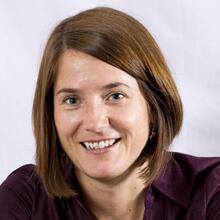 Trento, Italy – While the shifts in the Church that predicated the Council of Trent in the mid-1500s may not be quite as seismic as those put in motion by Martin Luther, the nearly 600 moral theologians who have been meeting here since Saturday as part of a world-wide “congress” in Catholic theological ethics recognize that we stand on equally shifting ground. And we want to talk about it.
Trento, Italy – While the shifts in the Church that predicated the Council of Trent in the mid-1500s may not be quite as seismic as those put in motion by Martin Luther, the nearly 600 moral theologians who have been meeting here since Saturday as part of a world-wide “congress” in Catholic theological ethics recognize that we stand on equally shifting ground. And we want to talk about it.
In fact, sustained face-to-face conversation of Catholic moralists from around the globe is the main goal of Catholic Ethics in the World Church, the second such world-gathering this decade spear-headed by Boston College moral theologians Jim Keenan, SJ and an international planning team. The conference’s theme, “In the Currents of History: from Tent to the Future,” underscores the importance of tradition in moral theology. Celebrating Eucharist in Trento’s Romanesque-style Duomo last night, the same sacred space where the Council Fathers of Trent established our discipline during the council from 1545-63, certainly underscored that point.
In some respects when it comes to Trent, the more things change the more they stay the same. The cardinals of the Council and the moral theologians of this week’s congress both know the value of face-to-face discussion and disputation on pressing moral matters, especially when the Church finds itself in a time of public scandal caused by the abuse of authority. And while those of us here don’t exactly have 18 years for such conversation, we will be chewing on ideas presented at 10 plenary sessions and 220 individually delivered papers for quite some time. Like our magisterial predecessors in Trent, we find ourselves in the midst of an identity crisis both within and outside of the Church. And then there’s the continual need to discern and articulate moral imperatives in light of religious pluralism (the seeds of which were first planted by Luther), and to bridge a number of gaps that persist between the Church and the world, both of which we are called to serve as moral theologians.
But certainly, times have changed. The European Council Fathers would no doubt be surprised by the global face, or faces, of moral theology today. The 585 participants represent 73 countries on four continents. The 23 members in my break-out discussion group alone hail from 18 countries. Simultaneous translation in four languages murmurs from our headsets in the plenary hall. Most notably among us are ethicists from the global south, particularly Africa whose delegation has roughly 65 members. Marquette ethicist Bryan Massingale noted in his plenary presentation that this is an important step in “taking seriously the experience of dark bodies” in our Church and world.
That more than half of the participants are lay people points to the dramatic democratization of the discipline (the intermittent verbal contributions of infants and toddlers in the sessions is an added benefit not experienced at the Council). The “feminization of moral theology” would also come as a surprise. Eighty-eight of those here are women professors, as are close to half of the 147 new scholars in attendance. We bring new issues to the floor: care giving and a rapidly aging global population, sexual violence against migrants, spousal abuse, economic and religious marginalization. In an unexpectedly emotional moment for me at the opening plenary, Keenan acknowledged the eight new women doctoral students from Africa whose education is a direct result of the last world gathering in Padua in 2006. I hope to interview Vivian Minikongo, the first lay professor of moral theology on that continent, before departing on Wednesday.
More to follow. I’m off to participate in another tradition I gladly share with my predecessors: the sunset on Trento’s mountains and its delicious hospitality!
Maureen O'Connell







